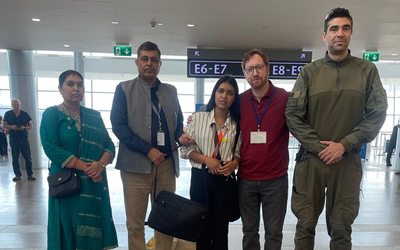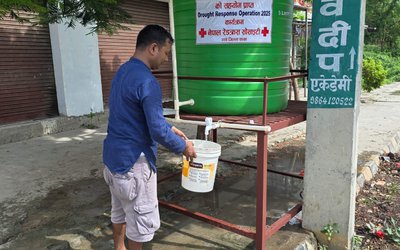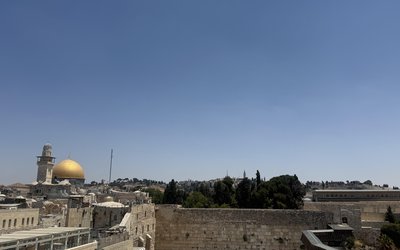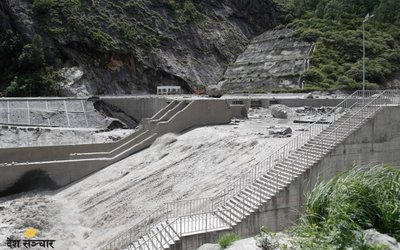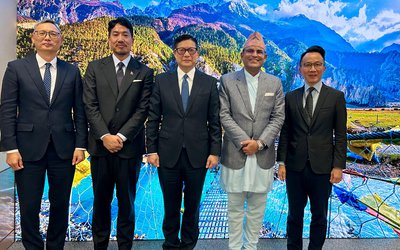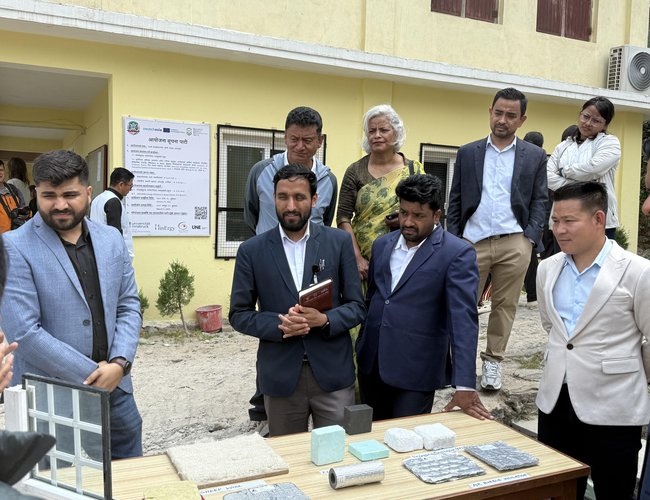
Despite the construction of new school buildings after the 2015 earthquake, student attendance in the ECD class at Shree Rasuwa Secondary School in Dhunche, located 75 kilometers north of Kathmandu, has significantly decreased in the past year. Dhunche, situated at an elevation of over 2,000 meters above sea level, faces harsh winters with temperatures dropping to -2°C, accompanied by frost and cold winds. Even in summer, the region experiences moderately cold days. The concrete structure of the classrooms worsens the cold conditions, often leading to children falling ill with fevers and colds.
"Due to the cold weather and resulting illnesses, ECD class attendance has dropped to zero," said Temp Risang, the school's headmaster. Concerned about the well-being of the children, the school sought assistance from Kaisang Nurpu Tamang, the chairperson of Gosaikunda Rural Municipality, to create a more thermally comfortable environment.
To tackle this pressing issue, the BEEN Project, in collaboration with Gosaikunda Rural Municipality, supported the energy retrofitting of one ECD classroom at Shree Rasuwa Secondary School.
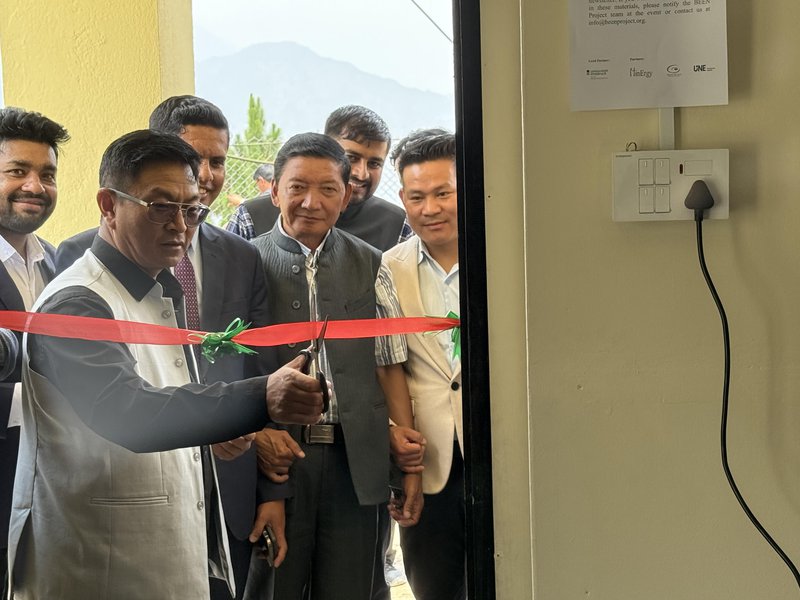
The objective is to establish a warm, comfortable, and safe learning space that enhances student well-being and academic performance, while also serving as a model for potential replication.
Faced with an urgent need and no immediate solutions, Tamang approached Suyesh Prajapati and his team at BEEN. They agreed to jointly fund the retrofitting of the ECD classroom, with the aim of providing a stable and child-friendly indoor temperature.
Tamang expressed his appreciation to the European Union and the BEEN project for their assistance, which involved the installation of thermal technologies to maintain a comfortable classroom environment. The handover ceremony for the renovated ECD classroom took place on May 16, 2025, at Shree Rasuwa Secondary School in Dhunche.
The energy retrofitting of the ECD classroom was funded by the European Union through the SWITCH Asia Grants Programme and received technical support from the BEEN Project. Schools in Nepal prioritize earthquake safety in their design, often neglecting the need for thermal comfort in classrooms.
"This directly impacts the health of students and the quality of education, especially in regions with extreme climates. The same situation is observed in schools in Gosaikunda Rural Municipality, situated at the base of the Langtang Himalayas, which were reconstructed for structural safety after the 2015 earthquake. However, the issue of thermal comfort has not been adequately addressed," Prajapati explained.
As a result, the indoor conditions during winter are extremely cold, particularly affecting ECD classrooms with young children under the age of eight.
A survey conducted by the municipality found that parents are reluctant to send their young children to school in winter due to the chilly classroom conditions. The harsh environment leads to children falling ill, resulting in a high rate of absenteeism, with up to 50% of students missing school during the colder months.
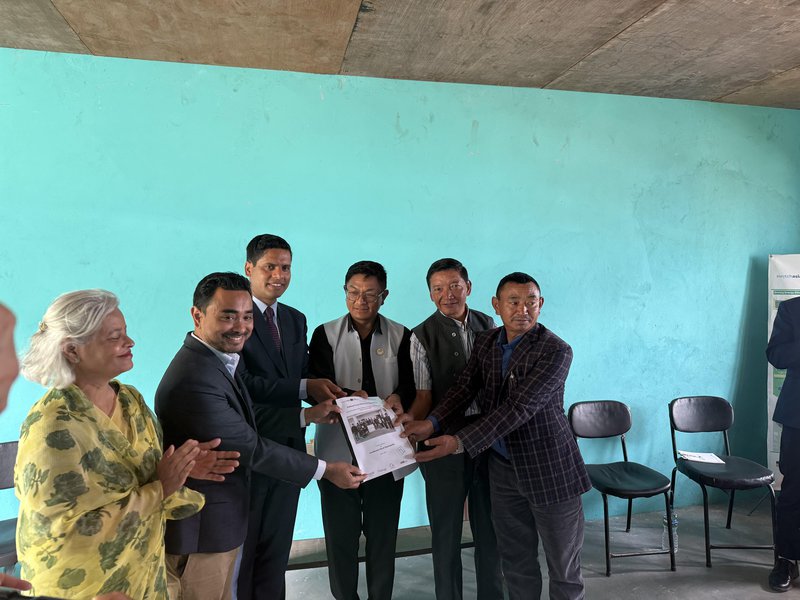
Key interventions included insulating the roof, walls, and floor to reduce heat loss; replacing existing metal windows with uPVC-framed double-glazed windows; sealing gaps to eliminate air leaks; and applying 25mm of EPS insulation on the walls and ceiling and 25mm of XPS insulation on the floor.
These measures significantly improve indoor thermal comfort, energy efficiency, and the overall learning environment. The retrofitted classroom demonstrates Gosaikunda Rural Municipality's dedication to addressing the severe indoor thermal discomfort experienced by young learners during the winter months. Encouraged by the positive outcomes, the municipality plans to implement similar retrofitting measures in other schools within the municipality.
In addition to classroom retrofitting, the BEEN Project also focused on enhancing local technical capacity. On-the-job training for local contractors on green masonry techniques and energy retrofitting was provided during the retrofitting of the ECD classroom. Training in green masonry techniques included Rat Trap Bond and cavity wall construction.
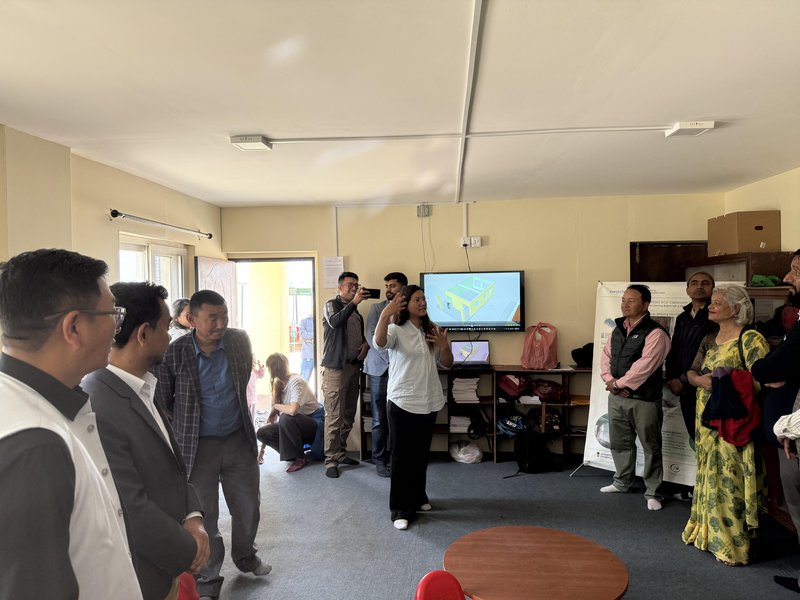
Demonstration walls featuring energy-efficient technologies were built at the school to promote sustainable building practices. The BUILDING Energy Efficiency in Nepal (BEEN) Project, funded by the European Union, is a four-year initiative led by the University of Innsbruck in partnership with MinErgy Pvt Ltd, Greentech Knowledge Solutions Pvt Ltd, and Asociación Española de Normalización. The project is being implemented in 60 municipalities across Bagmati, Lumbini, and Gandaki provinces, with Gosainkunda Rural Municipality representing the cold bioclimatic zone in Bagmati Province.
The newly constructed school room, costing over Rs.700,000.00, serves as a model for other schools. The inauguration ceremony was attended by key stakeholders, including Suyesh Prajapati, Usha Maskey Manandhar, Bijaya Lama, Kaisang Nurpa Tamang, and Arjun Poudel. The room was officially handed over to the Headmaster of Rasuwa Secondary School after the inauguration.
Headmaster Risang expressed, "This classroom is a valuable asset for us to provide education to the children attending our school. Parents can now rest assured about their children's health." This is the first school in the Gosaikunda Rural Municipality to have such a modern classroom, with over 15 schools in the area facing similar challenges.
"I would like to extend my gratitude to the European Union and the BEEN project for their technical and financial support in renovating the ECD room of Rasuwa Secondary School. There are schools in higher elevations like Langtang and Gosaikunda areas that also require retrofitting. I urge the EU and the BEEN project to provide us with technical assistance. The Municipality is willing to contribute to the costs of such projects," stated Tamang, chairperson of Gosaikunda Municipality.
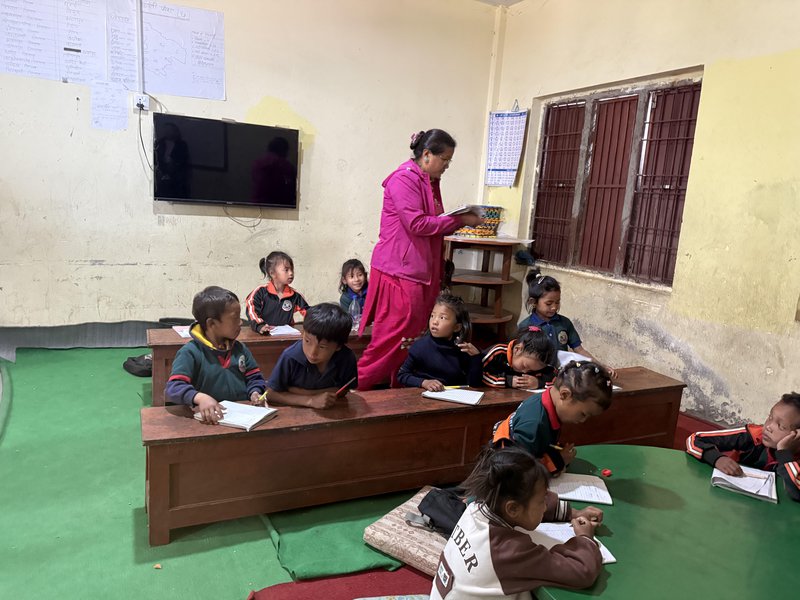
The new ECD classroom, with a capacity of 30 students, is designed to be adaptable to various temperatures. Constructed using climate-specific strategies based on sun, wind, light, and micro-climatic factors, this green, energy-efficient building contributes to adaptation," stated Prajapati, Team Leader of BEEN.
The BEEN project, commencing in March 2022 and scheduled for completion in February 2026, aims to assist Nepal in achieving its goal of net-zero greenhouse gas emissions by 2045.
CEO Manandhar highlighted the successful completion of the retrofitting project, showcasing how it improves classroom suitability for children.
The event marked a milestone in enhancing energy efficiency and creating child-friendly learning environments in high-altitude Nepal, with the official handover of an energy-retrofitted Early Childhood Development (ECD) classroom at Shree Rasuwa Secondary School in Dhunche.
This initiative directly impacts student health and education quality, especially in regions with extreme climates like Gosaikunda Rural Municipality at the base of the Langtang Himalayas. While schools were rebuilt for structural safety after the 2015 earthquake, thermal comfort remains a challenge. The cold indoor conditions during winter, particularly in ECD classrooms for young children under eight, have led to parents hesitating to send their children to school.
The project aims to create a welcoming, cozy, and secure learning environment to improve student well-being and academic performance. Key actions include insulating the roof, walls, and floor, upgrading windows, sealing gaps, and adding insulation.
The project covers 60 municipalities in Nepal's Bagmati, Gandaki, and Lumbini Provinces, showcasing energy-efficient retrofits to make buildings more environmentally friendly. The renovated classroom in Gosaikunda Rural Municipality demonstrates improved thermal comfort and energy efficiency. The municipality plans to replicate these strategies in other schools. The project also provides training for local contractors on green masonry techniques and energy retrofitting.
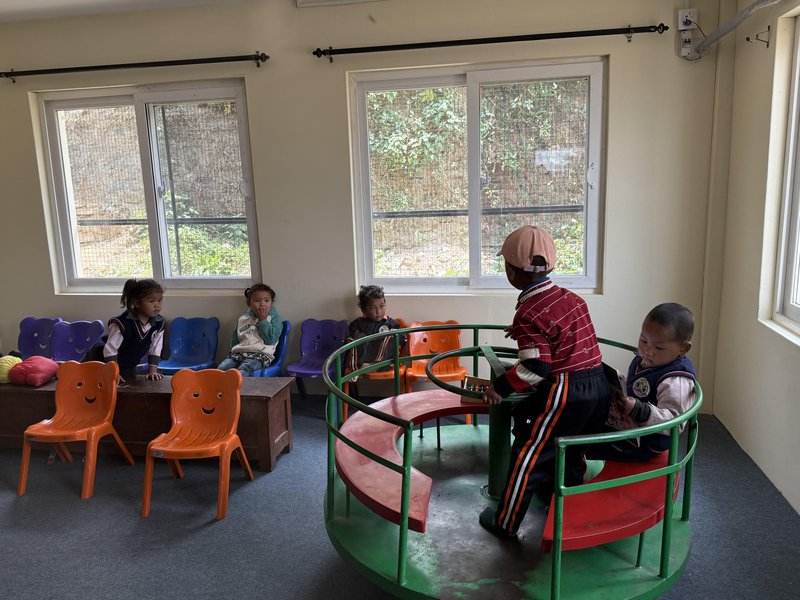
Demonstration walls were constructed within the school premises to showcase energy-efficient technologies and promote sustainable building practices. After the 2015 earthquake, newly constructed school buildings like Shree Rasuwa Secondary School have classrooms that are unsuitable for early childhood classes during the winter.
Out of a total of 7,677 schools, 7,561 have been handed over to the School Management Committees, with 116 schools still undergoing reconstruction. The reconstructed schools have 3,453 separate toilets for boys and girls, and 2,170 schools have essential drinking water facilities.
According to Dilli Ram Luitel, Project Director of the Central Level Project Implementation Unit (CLPIU) under the Ministry of Education, Science, and Technology, some schools already had drinking water facilities in place, eliminating the need for new construction. Luitel mentioned that many school buildings have been reconstructed under the build back better model, but energy-efficient technology was not utilized.
Schools in high mountain areas like Shree Rasuwa Secondary School are facing challenges due to the lack of energy-efficient and climate-appropriate technologies. To address issues such as room temperature, BEEN has introduced new technology to create thermal comfort in classrooms. Despite the project's relatively small size, it has had a significant demonstrative impact in Rasuwa district. Chief District Officer Arjun Poudel highlighted that the retrofitting of ECD classrooms has raised awareness in the district about the possibility of creating thermal-friendly classrooms.

Keshab Poudel
Poudel is the editor of New Spotlight Magazine.
- SARDAR BHIM BAHADUR PANDE :A Belated Tribute
- Aug 21, 2025
- Israel After October 7: No Time to Blink
- Aug 20, 2025
- Heartbroken Family of Nepali Hostage Visits Site of Hamas Massacre, Urges Peace and Safe Return of Bipin Joshi
- Aug 14, 2025
- LIEUTENANT COLONEL JP CROSS: Centenary Birthday
- Aug 06, 2025
- Israeli Officials Say That 20 People Including Bipin Joshi Are Alive
- Aug 05, 2025
